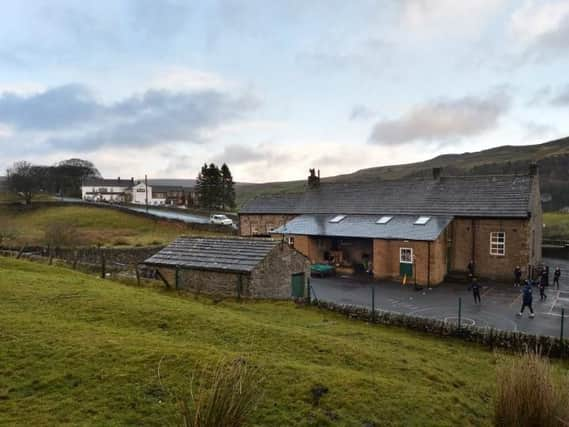The Yorkshire Dales school with just six pupils


It has just six primary school pupils left. In September, this would fall to five, then potentially to three.
Having collaborated with another school, it’s finances are stable. But it faces severe social change as the fabric of the community is altered.
Advertisement
Hide AdAdvertisement
Hide AdThe number of children in the area’s schools has halved in the past decade, governor Charles Cody told The Yorkshire Post. In Arkengarthdale, it has fallen 80 per cent.
“We’ve no alternative but to consider the case for closure,” he said. “We just don’t have any children.”
In attempts to fill its classrooms and keep the school open, the school had turned to drawing in the families of refugees based at Catterick, 45 minutes away. But even with the hope of extra children, there wasn’t the transport to take them to school.
And the picture is repeated across the Dales.
Across North Yorkshire, 10 small schools have now faced uncertainty over their future as pupil numbers fall.
Advertisement
Hide AdAdvertisement
Hide AdIt started in Horton-in-Ribblesdale in 2017. Parent governors, faced with closure, stepped in to hire their own headteacher. By the time the school closed, pupils numbers had fallen to just 12.
Then it was Drax, then Rathmell, Ingleby Arncliffe, Skipton Ings, Swainby and Potto. Burnt Yates near Harrogate followed, then the future of West Burton was thrown into doubt. Now it is Clapham.
Settle Primary axed one of its classes. At West Burton, Askrigg and Bainbridge, governors are exploring options for sharing sites. Older pupils could be taught in one setting and the younger ones in another, meaning that at least the children would interact with others their own age.
“As well as financial challenge, there are educational challenge,” said Mrs Vetch. “As schools become smaller, it’s becoming more difficult to provide the opportunities that children deserve.
Advertisement
Hide AdAdvertisement
Hide Ad“When you’re talking about Reception children, a lot of their work is around relationships. If they are one of only two or children their age in a school, it doesn’t give them the scope to learn these lessons.”
In the Upper Wharfedale Primary Federation, it emerges, parents at two small schools have made “significant” financial contributions. And while it plugs a gap, chair of governors Anne Vetch warns, it isn’t sustainable. A reliance on parental donations, she adds, goes against the principles of a free education.
“This is not an ethical way forward,” she said. “Certainly, it’s not sustainable.
“We have got to be more radical in how we look at this.”
“Financially, things are pretty dire,” she adds. “It’s a question of creativity, to respond to such a challenging picture. It’s not about funds being mismanaged - there just isn’t enough to do the job we have to do.”
Advertisement
Hide AdAdvertisement
Hide AdThe local authority, North Yorkshire County Council, has its hands tied, Mrs Vetch adds.
The Government must make a measure of allowance for the challenges rural schools face.
And they must also grant greater independent powers to councils to enable them to make decisions that can be for the good of these schools and for rural education.
“Governors, in the end, are volunteers,” she said. “It’s just a ridiculous demand on them to be making such huge strategic decisions on the future of education and leaving it in the hands of volunteers.
Advertisement
Hide AdAdvertisement
Hide Ad“The Government seems to be removing as much power as it can from the hands of the local authority. That leaves us to sink or swim.
“Going into these schools, is an absolute joy, a pleasure and a privilege. The children are getting a first rate education, they are happy and safe. But only because there is all this going on in the background.
“But it only takes one gap, and it starts to fall apart.”